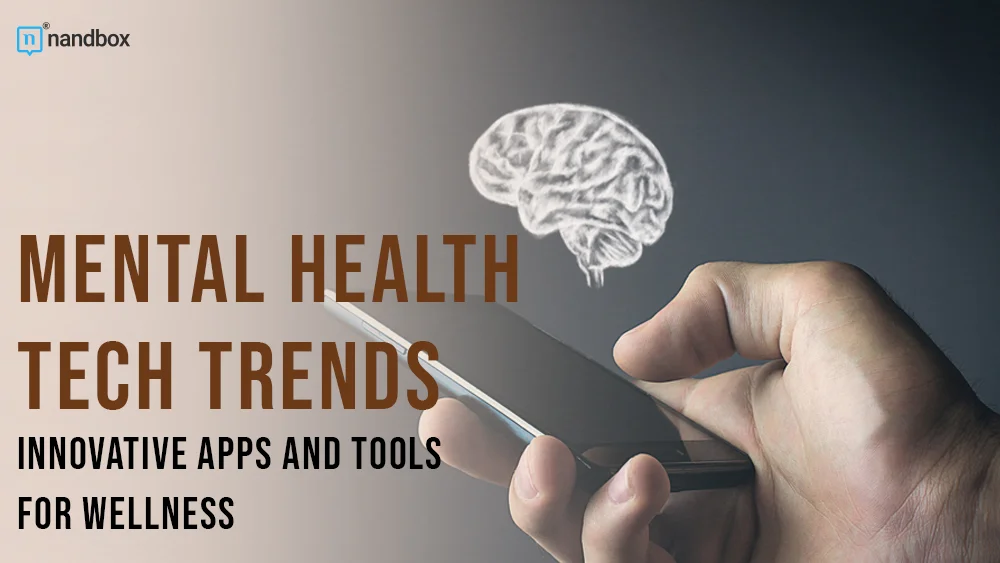The importance of mental healthcare has been increasingly recognized in recent years, with social media playing a pivotal role in destigmatizing mental illnesses. From the early 2010s, celebrities, influencers, and patient advocates began to open up. Sharing their own experiences and motivating followers to speak out and seek help. This also coincided with fast-paced innovation and growth in digital technology and AI. So it’s no surprise that both tech entrepreneurs and mental health experts began focusing heavily on the development of tech-driven mental health solutions. While initial efforts focused on simple apps or programs that could provide users with information or reminders and connect them with helplines. Today’s mental health tech covers a much wider gamut of mental healthcare.
Mental health tech innovations now range from mobile apps and online therapy platforms to AI-driven mental health chatbots. All designed to make support services more accessible and affordable.
This year has had its share of milestones, including a variety of new technologies and programs to advance mental health. Experts rightly reckon that technology will be critical to meet the challenges ahead. We are faced with a mental health crisis that was exacerbated by the COVID-19 pandemic. In 2021, the number of American adults afflicted with mental health problems came close to 60 million, representing nearly a quarter of the adult population.
Online mental health services came to play a vital role in addressing the growing burden of pandemic-related depression and anxiety worldwide. Affordable and even free online therapy platforms have significantly improved access to mental healthcare, but here are some more important developments and trends in mental health tech that you should know about.
Top 5 Mental Health Developments in 2024
Lenovo’s ‘Meet Your Digital Self’
Lenovo’s Work For Humanity project is an innovative initiative aimed at demonstrating how technology can enable people to work from anywhere while contributing to local communities. “Meet Your Digital Self” was a one-of-a-kind pioneering social experiment and as the name suggests, it focused on the relationship between our digital personas and mental health.
The project uses AI-powered tools to address the problems of isolation and disconnect that are pervasive in Gen Z. Its combined technology created complete, lifelike avatars based on the online personas of two individuals who participated in the project.
These personas were capable of engaging in completely natural and unscripted conversations with family members who did not have great communication with them normally. The program showcased how effectively AI can be used to bridge divides between people’s online and offline realities. As well as between people with vastly different perspectives who may normally have difficulty communicating with each other.
Baracoda’s Mental Health Mirror
Yes, this may sound like the mirror from Snow White, but there’s nothing sinister about it. Designed by Baracoda, a technology company that creates data-driven wellness solutions. The BMind smart mirror is like your personal counselor and health coach.
It uses sensors and AI to track things like your skin condition and vital signs. Providing personalized health tips and reminders to improve your daily wellness. More importantly, from a mental health perspective. It can analyze your facial expressions and non-verbal and verbal cues with the help of its natural language processing capabilities and AI learning.
This allows it to offer personalized mental health tips and coaching, including guidance on meditation, and motivation to keep you on track. The tech created quite a buzz at this year’s Consumer Electronics Show.
NIMH Funded Program For Suicide Prevention
Nearly 50,000 lives are lost to suicide in the US every year. All of these deaths are preventable, but it requires a multifaceted approach that includes innovations in technology. Digital tools and AI can screen for at-risk individuals before a crisis event. Providing them with easy and quick access to mental health services and community support.
Recognizing the critical role of technology in mental health solutions, the National Institute of Mental Health (NIMH) announced a five-year grant of $17 million earlier this year through its Center for Accelerating Practices to End Suicide through Technology Translation (CAPES).
The program will begin work on various technology initiatives. Including computerized adaptive testing, which streamlines primary care workflow through complex calculations to enable more targeted risk stratification and interventions. It will also focus on ADAPT (Automated, Data-driven, Adaptable, and Transferable) learning for suicide prevention. And LEMURS (Leveraging Early Mental Health Uncovering Risk for Suicide) to support college health centers in suicide-risk screening and mitigation.
Mental Health Digital Twin (MHDT) technology
Ontrak Inc is a company that specializes in behavioral health solutions that use AI and digital technology. The brand introduced its unique Mental Health Digital Twin (MHDT) technology earlier this year as a potential next step in mental healthcare delivery.
It creates a digital replica of a patient’s mental health state using data from a wide range of sources, including medical records, wearable devices, and self-reported information. It then uses all of these data points and AI to predict mental health issues, personalize treatment plans, and monitor progress in real-time.
By providing a detailed and dynamic picture of a patient’s mental health. MHDT could help therapists improve the accuracy and effectiveness of treatments, leading to better patient outcomes and more efficient mental healthcare delivery.
UKRI Mindset XR Innovator Support Program
The UKRI Mindset XR Innovator Support Program. Launched earlier this year in UK, it supports innovative projects that use extended reality (XR) technologies like virtual reality and augmented reality for mental healthcare.
The project focuses on developing new XR tools and applications to enhance mental health treatments, therapy, and support. By harnessing the immersive capabilities of these technologies. The program hopes to enhance therapy effectiveness, increase accessibility to mental health services. And provide new ways for patients to manage conditions like anxiety, phobias, PTSD, and depression.




